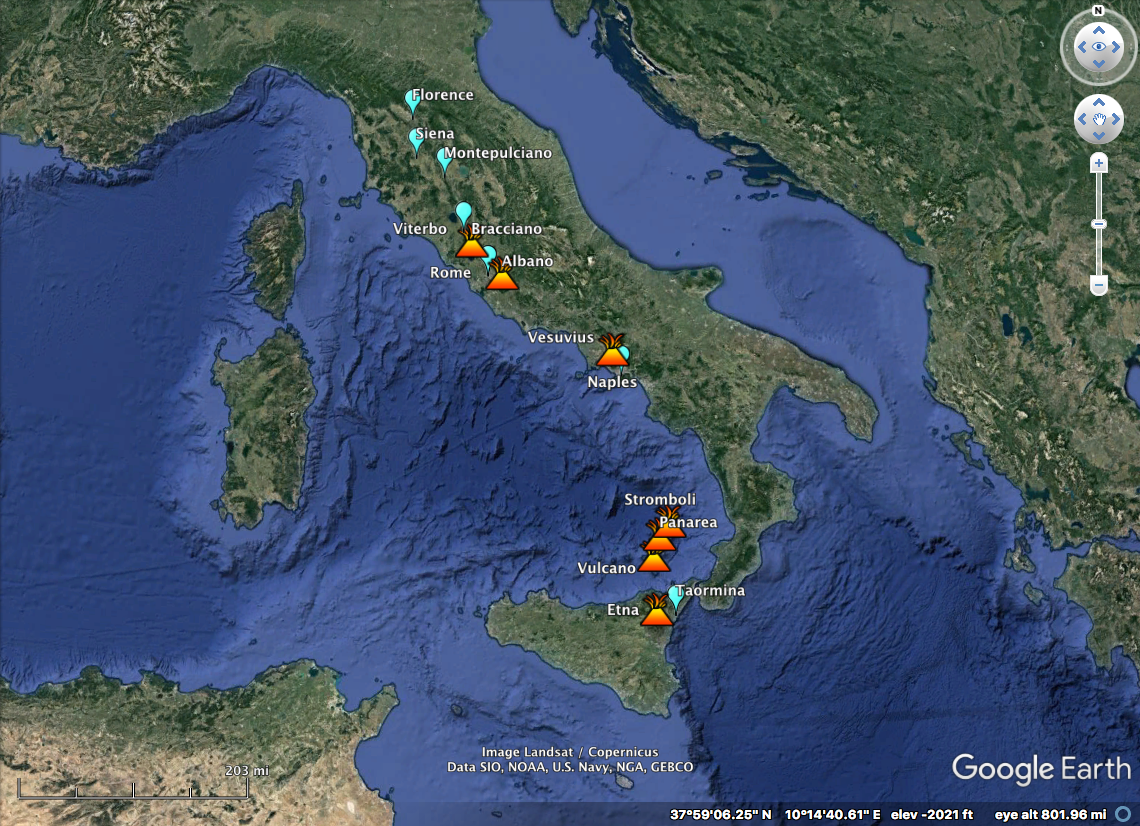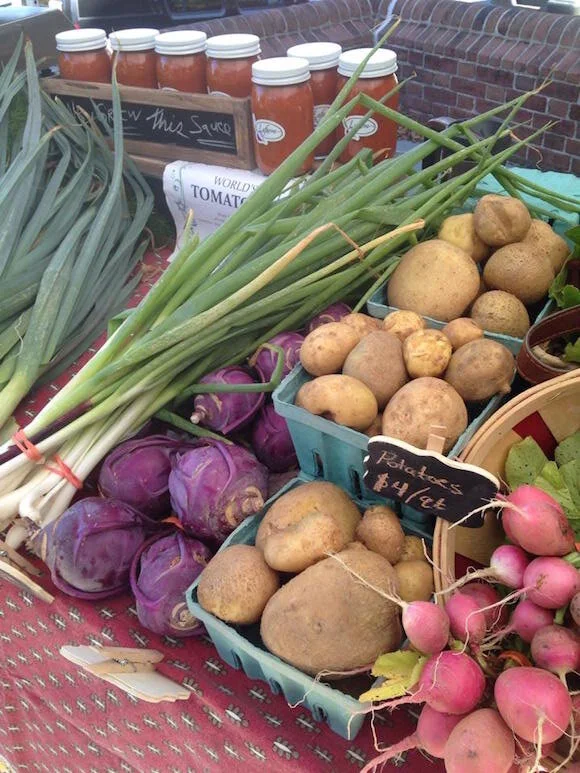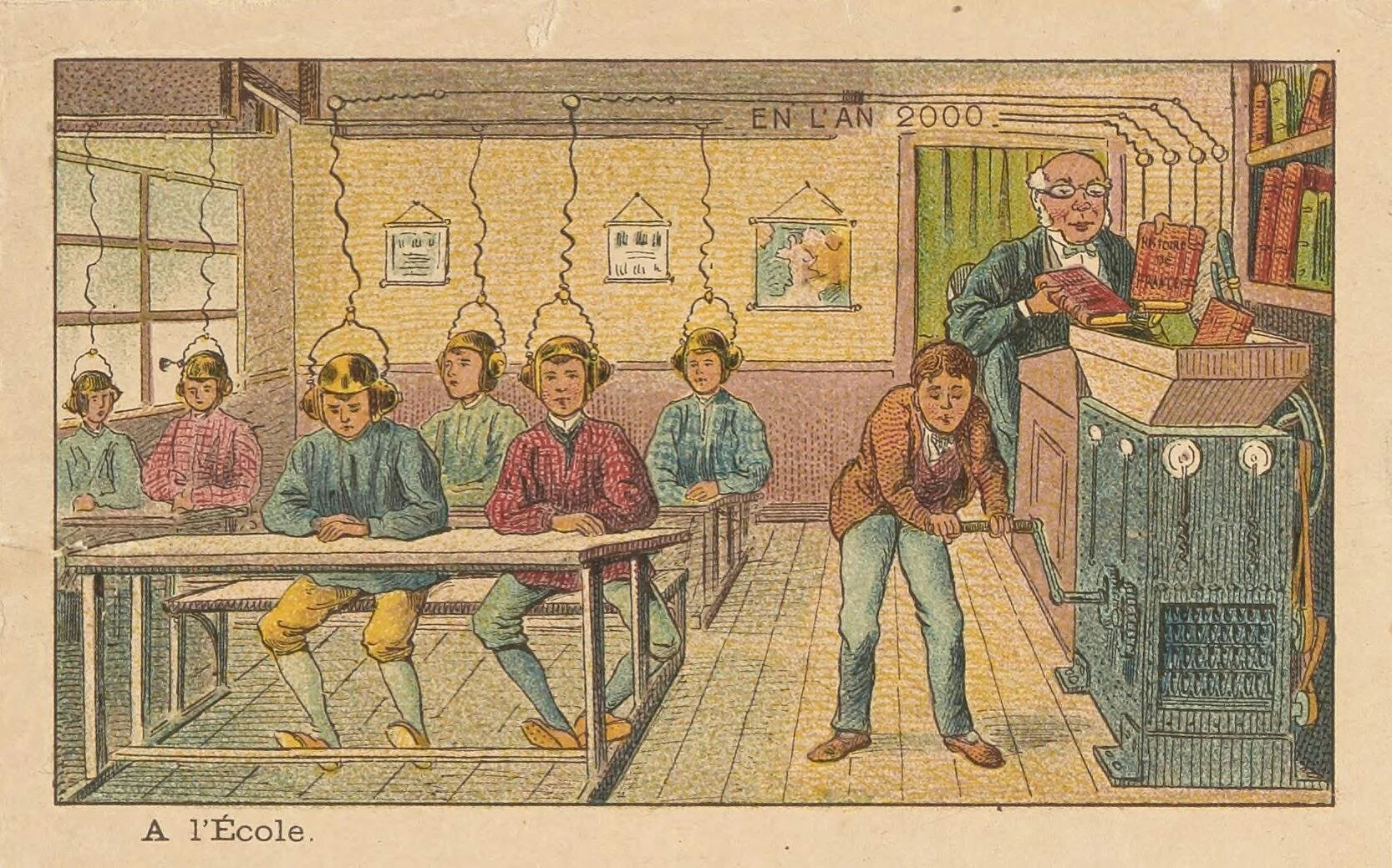Teaching
History, Engineering Studies, Environmental Studies, and Interdisciplinary Electives at all levels
The final class projects are a series of podcasts about ways to know nature. Past versions are here at Soundcloud for 2014, 2015, and 2016.
FYS 18: Ten Ways to Know nature
This is a class about environmental thought and practice. Its central question is: how do you know what nature is? The question’s emphasis is on ‘how do you know’—through what means—in the sense that knowing is an activity with many styles and that coming to know things is an active process. The basic prompt for that question is that how we come to interact with nature influences the ways we think about those natures. The poet Wallace Stevens wrote “13 Ways of Looking at a Blackbird” in 1917, a model from which a number of other thinkers have mused about the various ways we see and live in the world. The geographer Donald Meinig, for example, writes of “Ten Versions of the Same Scene,” while environmental historian Jenny Price writes of “Thirteen Ways of Seeing Nature in L.A.,” in a similar manner. We follow Stevens, Meinig, Price, and a host of others to confront and analyze the choices we make in our lives to make claims about knowing nature.
INDS 201: From Plate to Plate: Terroir and the Geology and Agriculture of Food in Italy
Terroir, “the taste of place,” suggests how foods and drinks are geographically, environmentally, and culturally specific. This three-week interim course examines the concept of terroir through a tour of Italy. It takes a full lifecycle approach that begins with the geological basis for farming (subsoil, soil, and fertility), moves on to the practice of agriculture and farming, and ends with an examination of kitchens and tables. Students travel from Sicily and Naples in the South, through Rome, and into the fertile Tuscan region, experiencing active volcanoes, organic farms, food movement organizations, and socially active culinary institutes along the way. The objectives of the course are to examine and understand (a) the concept of terroir, (b) the connections between geology and agriculture, (c) the efforts by healthy food advocates to promote to fair, fresh, and just food, and (d) the ways those three elements play out in modern day Italy. The curriculum is threaded through with cross-cultural instruction and comparisons between southern European and North American food and farming cultures, practices, and policies. In brief, students explore the lifecycle of food from tectonic plate to kitchen plate, using Italy as the case study.
EGRS 230: Environmental justice
This is an introduction to the theory and practice of environmental justice (EJ). It is based on the premise that all people have a right to live in an environment free from hazardous pollution and contamination, a right to live as part of ecologically stable systems, and the ability to include environmental health as part of their community structures. The course introduces frameworks to analyze environmental issues through the lens of social justice and human inequality, specifically with attention to race, class, gender, engineering, and politics. It uses case studies of water, energy, infrastructure, climate, and food to ask about the advantages and drawbacks of current systems of production and consumption, who bears the burdens and who enjoys the benefits of our current system, what alternatives are available, and why some have access to a clean and safe environment while others do not. As an EGRS course, it also expects students to engage with a vision of engineering that can incorporate the values of EJ in the design, development and maintenance of technological systems.
Find the course projects at this site.
Find the course projects at this site (2018), this one (2017), and this one (2016).
EGRS 281: Historical Studies in engineering & society (formerly History 215: The history of technology)
This is a survey of historical studies of engineering and society that examines the history of technological development and develops skills in context analysis that help engineers analyze evidence about the past as a way to understand the patterns of engineered design. Seeking the first leads us to review various technologies in their historical-cultural contexts, with examples from military, infrastructural, transportation, energy, agricultural, domestic, and communication settings. The second leads us to study the question of technology itself: what do we talk about when we talk about technology? Why and how do various cultures promote and influence technologies? All told, the course stresses the roles played by cultural influences in determining the direction of technological development while asking how students can become familiar with and fit their work to those factors.
EVST 315: Food Studies: History, Justice, Environment
This course examines the contours of modern food systems, with an emphasis on historical, environmental, and justice-based contexts. Its goal is to help students understand the interconnections between how people grow, distribute, and consume food so that they can consider what it would take to build a more just and sustainable food system. The course proceeds in four parts. It begins by developing a common vocabulary with which to engage in food systems analysis. It then drops back to recognize the historical decisions that led to the current system, since restructuring structural inequities means understanding how those structures got built in the first place. The third part of the course examines how others have sought that restructuring, while the final part (which accounts for the second half of the course) has students deliberating on twenty-first century efforts to enact food system reform.
Find podcasts from the Spring 2021 course here, about figures in 20th and 21st century food and farm history.
EGRS 370: Engineering ethics
This is an advanced reading seminar in engineering ethics. It uses specific ethical challenges of the new century—anti-racist technology, environmental justice, assistive technologies, artificial intelligence and digital tech—to ground discussions around ethical theories, the production of risk, and the structural factors that create, constrain, and shape the kinds of ethical questions that arise and the ways they can be addressed by the individual.
EGRS/EVST 373: Technology and Nature
This course examines the sometimes contentious relationship between the natural world and human attempts to understand it (science) and control it (technology). It begins by noting that how we distinguish between the natural and the technological often informs how we understand the pragmatic (what is possible) and the ethical (what is permissible). But how hard and fast are the boundaries, how can we instead examine relationships between technology and nature instead of strict boundaries, and what can we learn from doing so?We survey ethical, social, artistic and scientific distinctions between the natural world and the human-built world though examples that include gardens, farms, trains, cars, bridges, buildings, cities, rivers, factories, and more. Throughout the course, artwork will serve as a common theme and reference point (sculpture, painting, film) to hold together technology and nature. In brief, the purpose of the course is to help students develop a nuanced understanding of the interactions amongst and between technology and nature.
Find course projects at this site (2018), this one (Fall 2016), and this one (2016).
EVST 400: Senior Praxis in Environmental Science and Studies (co-taught with prof. Kira Lawrence, GeologY)
The most recent version of this course (Fall 2017) explored best practices of college farming with the goal of developing a set of recommendations for the future of LaFarm. The course requires theoretical grounding but is praxis oriented. The specific practical objective of this course was to plan the future expansion of LaFarm grounded in a sustainability and environmental systems perspective. As graduating seniors in Environmental Studies, students use this specific outcome to demonstrate leadership while helping usher in a new era of sustainability and environmental citizenship for the Lafayette community.
A prior version (2015) designed the “Greening Lafayette” module for the College. Here’s a story about it.
EGRS 451: Capstone Seminar in Engineering and Society
This senior capstone for majors in the Engineering Studies focuses on the place of engineering and technology in society. We examine the ways cultural values shape technologies, social foundations define the role of engineers, and engineers influence the broader world in efforts to achieve progress. Students then take the lessons of political philosophy, historical context, cultural awareness, communication, technical proficiency, economic theory, and environmental knowledge from prior classes and apply them to original projects on campus and the Lehigh Valley region. Students who graduate from the program have interdisciplinary learning and communication skills, understand the historically changing place of engineering and technology in society, and provide leadership in public debates about technology, policy, and sustainability. Students with this training are prepared to be engineers, policy makers and advisors, planning facilitators, community organizers, consultants, environmental specialists, and more. The capstone seminar allows them to finalize their preparation for that future.
A close-up of the KSAT Musical Path, designed in EGRS 451 (FA15), EGRS 480 (SP16) and installed Fall 2018. Here’s a story about it and the KSAT page for it.
EGRS 480: Sustainable Solutions
The focus of this course is investigating sustainable solutions to societal problems. Sustainability is broadly defined to be environmental sustainability as including the economic, cultural, social, organizational, and political sustainability of alternative solutions. Students work in a team to identify and evaluate solutions based on their environmental, technological, economic, and practical merit. In the process, they gain experience in addressing problems and putting together the proposals and documentation required for a project to be considered for implementation at Lafayette. In 2016, the class designed a Children’s Musical Playground for the Karl Stirner Arts Trail in Easton (with the help of Art Professor Jim Toia). 2018’s class completed a Climate Change Vulnerability Assessment with the Nurture Nature Center for the City of Easton (as co-taught with Julia Nicodemus). The 2020 class designed Lafayette Gardens as a space for education, recreation, and place-making on campus. The college homepage ran a story about it here.










